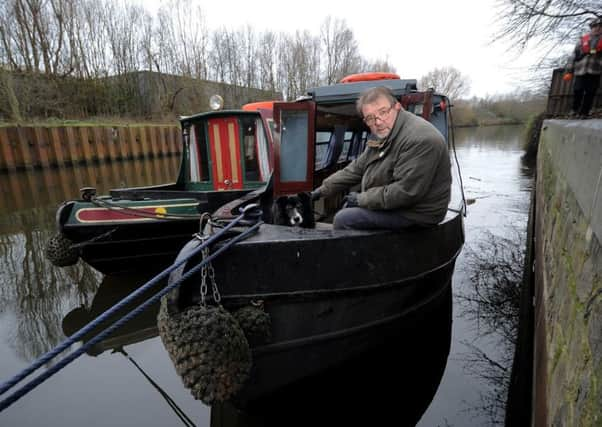How Leeds’ lottery funded loneliness project is still making waves


Float Your Boat is one of 76 projects, as diverse as a social group for Chinese elders to a bespoke project for older LGBT people, to receive funding from Time to Shine, the £6m lottery funded project that began in the city in 2016.
“We don’t take people out for boat trip,” project director Alan Bolton said. “It’s for the guys to start feeling useful, and to connect with each other and have a sense of community.”
Advertisement
Hide AdAdvertisement
Hide AdFloat Your Boat received £149,000 funding from Time to Shine last year, and uses its work as a catalyst for building relationships.
Many of the men who attend the sessions wouldn’t describe themselves as lonely, but are at one of the trigger points for suffering loneliness, as recent retirees, or those who have experienced a bereavement.
“There is a real sense of wellbeing that comes with feeling useful,” Mr Bolton added.
The project is still evolving, but hopes to become part of the developing tourist industry on Leeds’s canals.
Advertisement
Hide AdAdvertisement
Hide AdLeeds was one of 100 local authority areas that bid for a share of the £78m Ageing Better programme, now known as The National Lottery Community Fund, that aimed to improve the lives of those over 50s suffering most at the grip of loneliness, and to find and share new ways of tackling the issue.
Time to Shine, which is ran by Leeds Older People’s Forum, was one of just 14 successful projects awarded a slice of the cash in September 2014.
Months of planning got underway before the first projects were announced the following spring.
It’s latest funding round has also supported Yorkshire Dance to run movement sessions for people with dementia living in care homes.
Advertisement
Hide AdAdvertisement
Hide AdProgramme manager Hilary Wadsworth said the city’s thriving third sector had been crucial to the success of the project, which has already reached some 8,000 of the 37,000 people in Leeds who would describe themselves as lonely.
“Our task has been to find projects that will help people to build meaningful connections,” she said. “We’ve used what we’ve learnt from the first couple of years to shape the latest projects we’ve funded, and found that what has had the most impact has been building those relationships that help to build confidence in a person who is lonely, so they can go on to create more relationships by themselves.”
The challenge for the next two years is to ensure there is a lasting legacy for Time to Shine - but for some of the projects its funded over the last few years, that is already there.
In 2021, funding for Time to Shine will run out, but it will leave behind initiatives that have already seen tangible results, with dozens of individual projects funded, hundreds of volunteers recruited and thousands of isolated people feeling less lonely.
Advertisement
Hide AdAdvertisement
Hide Ad“Five of the projects we funded have proved to have such an impact that they have gone on to receive further funding, because we have shown that there is a need, and shown evidence that they work,” Mrs Wadsworth said.
She said the scale of the loneliness issue meant they are now trying to work with older people to prevent loneliness, and with those who may be isolated, but “may not feel that entrenched loneliness.”
Recently funded preventative schemes include Armley Helping Hands ‘Don’t Call Me Old’ project, which involves volunteers going door to door to reach out to people who may not seek support themselves.
“There are a lot of people still living under the radar, if we have the tools to open up the community for them, it can make an amazing difference in their lives,” she added.
“We are still learning, and hope to identify and build on what we have done to help other organisations to identify and prevent loneliness in future.”